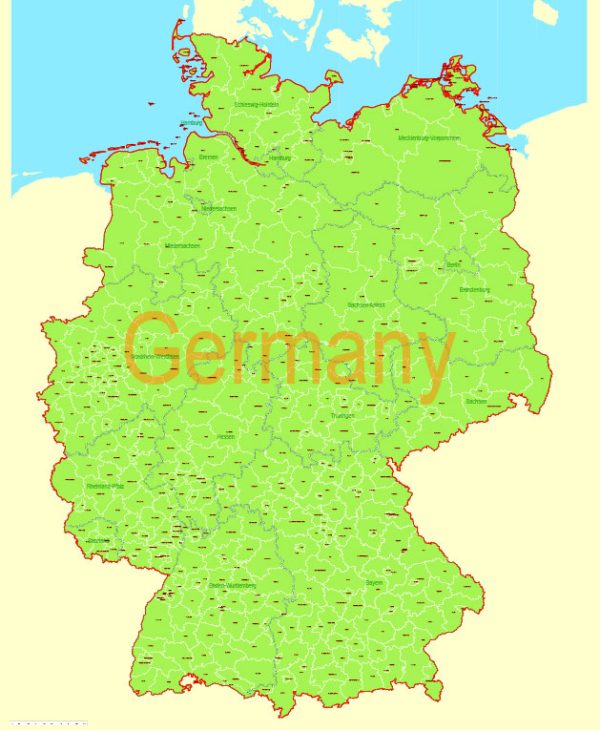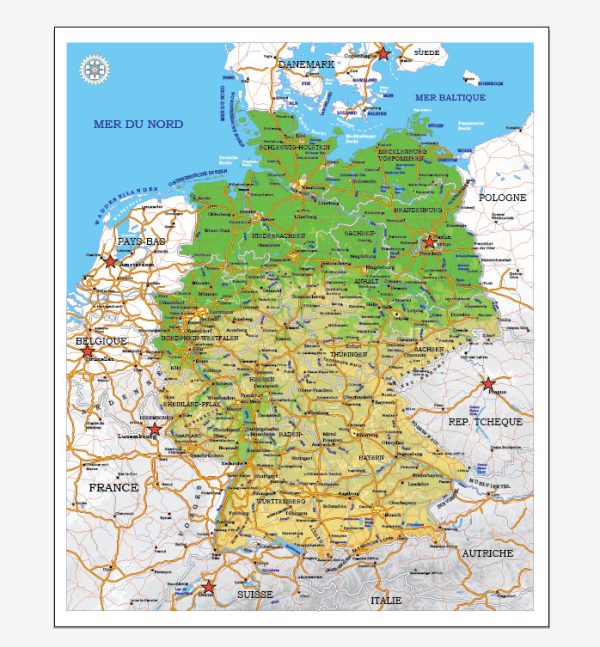Germany has a well-developed maritime industry and transportation sector that plays a crucial role in the country’s economy. While Germany is not traditionally known as a major maritime nation, it has a significant maritime presence due to its extensive coastline along the North Sea and Baltic Sea, as well as its strategic location in the heart of Europe. Here are some key aspects of Germany’s maritime industry and transportation:
1. Ports:
- Germany has several major ports, with the largest ones being Hamburg, Bremen/Bremerhaven, and Wilhelmshaven. These ports are vital hubs for international trade, handling a substantial portion of the country’s imports and exports.
- The Port of Hamburg, located on the Elbe River, is one of the busiest and largest ports in Europe. It serves as a major gateway for goods entering and leaving Germany.
2. Shipping Industry:
- Germany has a strong maritime shipping industry with a focus on container shipping, bulk carriers, and cruise ships. Some well-known German shipping companies include Hapag-Lloyd and Hamburg Süd.
- The German shipbuilding industry is also noteworthy, producing a range of vessels, including container ships, cruise liners, and naval vessels.
3. Maritime Technology and Innovation:
- Germany is known for its technological advancements in the maritime sector. The industry places a strong emphasis on innovation and sustainability, with a focus on developing environmentally friendly and energy-efficient vessels.
- The country is actively involved in research and development related to maritime technologies, including digitalization, automation, and alternative propulsion systems.
4. Logistics and Transportation:
- Germany’s maritime transportation sector is integrated into a comprehensive logistics network that includes road, rail, and inland waterways. Efficient transportation links ensure the smooth movement of goods to and from the ports.
- Inland waterways, such as the Rhine River, play a crucial role in transporting goods from the ports to inland destinations.
5. Environmental Sustainability:
- Germany places a strong emphasis on environmental sustainability in the maritime industry. Efforts are being made to reduce emissions from shipping, promote cleaner technologies, and adhere to international environmental standards.
6. Regulatory Framework:
- Germany adheres to international maritime regulations and conventions. The country actively participates in global efforts to enhance safety, security, and environmental protection in the maritime sector.
7. Challenges and Opportunities:
- Like many maritime nations, Germany faces challenges such as changing global trade patterns, geopolitical developments, and environmental concerns. However, these challenges also present opportunities for innovation and adaptation.
Overall, Germany’s maritime industry and transportation sector are integral components of its economic infrastructure, contributing significantly to the country’s position in the global economy. The emphasis on technology, sustainability, and efficient logistics reflects a commitment to maintaining and enhancing the competitiveness of its maritime activities.







 Author: Kirill Shrayber, Ph.D. FRGS
Author: Kirill Shrayber, Ph.D. FRGS